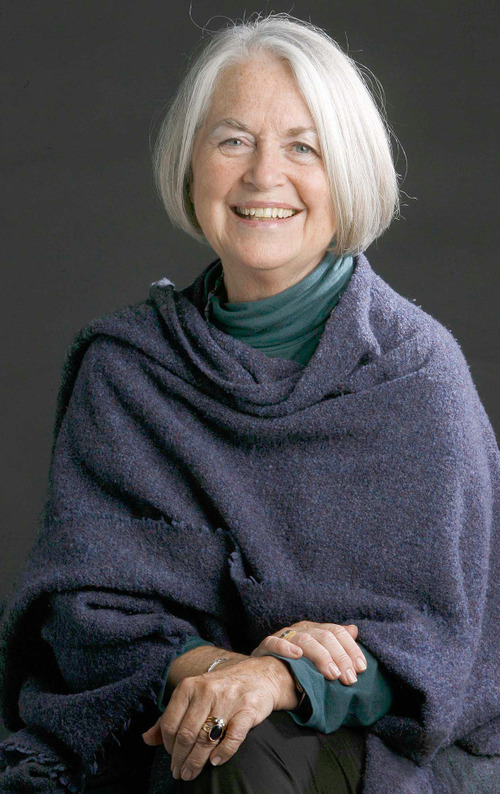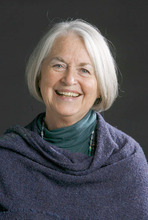This is an archived article that was published on sltrib.com in 2010, and information in the article may be outdated. It is provided only for personal research purposes and may not be reprinted.
Whether the crisis be abuse, recession, war, disease or death, Judy Dushku's first question always is: What about the women?
That feminist approach is the natural legacy of Dushku's Mormon mother, who taught young Judy and her two sisters how to organize, embrace, build and minister to a sisterhood everywhere they went.
Her mother provided casseroles to women in far-flung areas of Michigan; Dushku is armed instead with notebooks, cameras, volunteers willing to get their hands dirty and the occasional keyboard.
Dushku — a political science professor at Suffolk University in Boston, LDS Boston Stake Relief Society president and now president of an international nonprofit organization bringing hope and healing to war-torn Uganda — was in Utah last week to receive the 2010 Eve Award from the Mormon Women's Forum.
The award is given each year to a "woman of courage and vision who has made a significant contribution to Mormon women," forum leader Janice Allred told about 75 women and four men gathered on the fourth floor of the University of Utah's Union Building.
It was the annual Counterpoint Conference, whose theme this year was: "Half the Church: Turning Obstacles Into Opportunities for Mormon Women."
Discussions at the one-day conference focused on young women's efforts at "New Wave Feminism," sharing their experiences through blogging, and how sex affects LDS women's lives.
In the 1970s, Dushku was among the New England founders of Exponent II, a tabloid modeled after a 19th-century Utah counterpart, The Woman's Exponent.
In the modern version, Dushku edited a section called, "Sisters Speak." She worked hard to get Mormon women to share their experiences with love, marriage, birth control, loneliness, doubt, infertility, infidelity and so forth.
The editors were all active in The Church of Jesus Christ of Latter-day Saints and hoped to nudge the faith toward more gender equality. At the same time, Dushku was teaching a college course using a text titled, Sisterhood Is Global.
Today, Dushku's LDS feminism and global perspective have merged. But now she mostly uses her Mormonism to change the world, not the church.
The Boston-based leader, teacher, mother of four and good-natured whirlwind of activity is "a fierce and generous feminist and humanist," Lavina Fielding Anderson said in her introduction of the Eve Award. "She is a mother to the world."
As such, the activities of some of her "children" are heartbreaking.
In July, Dushku led 11 Mormon women to Gulu, a war-ravaged corner of Uganda, to build a house and document the horrific tales of young women who had been kidnapped by rebels and conscripted into the so-called Lord's Resistance Army.
Nearly 50 percent of the "child soldiers" were girls who, like the boys, were forced to kill family members as a symbol of their loyalty. But the girls also did the cooking and washing and were sex slaves to the men.
Dushku described the ordeal of one young woman she met. Rose was snatched at age 10 and a year later had a baby by one of the men who regularly raped her. The 22-year-old mother of four is safe now, but, like so many others, continues to suffer from the trauma.
Rose told Dushku that a group of young girls was sitting under a tree when a soldier singled out one of them. He asked the girls if the one he chose was "beautiful." They didn't know what he wanted them to answer, but said, yes.
"Beauty is trouble for men," he told them. "It causes conflict and competition among them."
The soldier then shot the girl dead, Dushku said, and required the others to lick the blood off her body as a warning of what happens to "beautiful girls."
The group visited an LDS congregation in Gulu, where the young branch president told Dushku that every member — male and female — had been traumatized by war.
Another young mother, Lucy, now brings together 35 such female survivors every Sunday under a tree for a kind of support group.
"We Mormons are big into family history," Dushku said. "Lucy is creating a new kind of family with a history. And our 11 Mormon women are part of a family that now has a history. Creating these families and telling these stories is part of our concept of Zion."
Dushku returned to the United States and launched a nonprofit organization, THARCE-GULU Inc., which stands for Trauma, Healing and Reflecting Center. She wants to build a center where women can reveal the horrors they have experienced as a way of healing. Dozens of eager participants from the LDS network have offered their time and money as have many others from various regions, religions and professions.
The fierce feminist feels an urgency to document these agonizing "herstories" before they, like so many other women's perspectives, are lost.
"To hear their stories and do nothing is to be a voyeur," one participant told Duskhu, expressing what they all felt. "I will not be that."
More on the Web
O For more information about Judy Dushku's nonprofit group, go to tharce-gulu.org.





